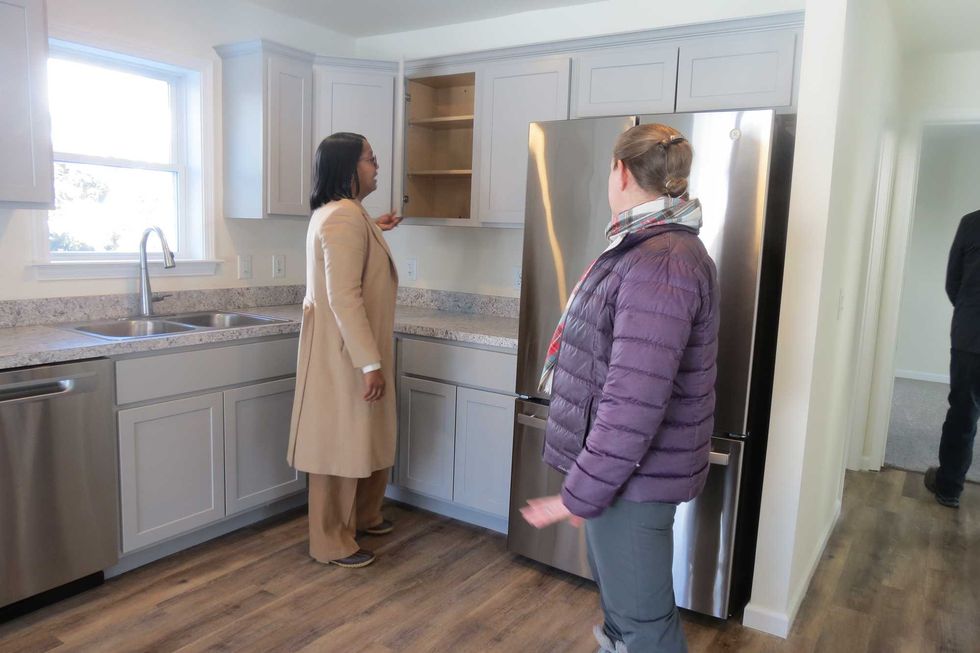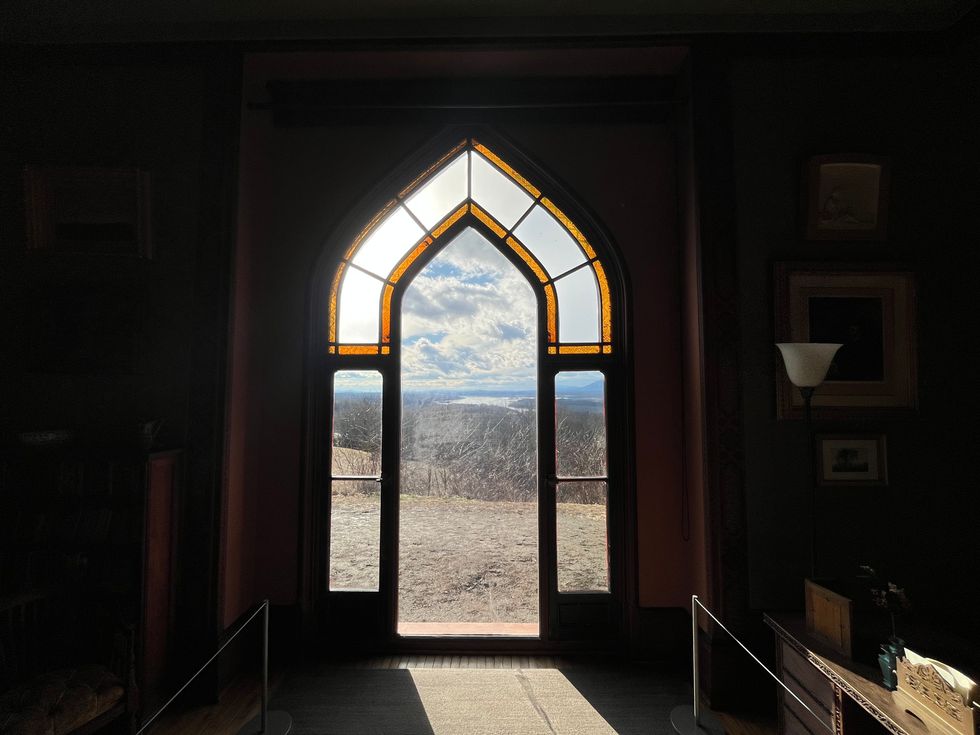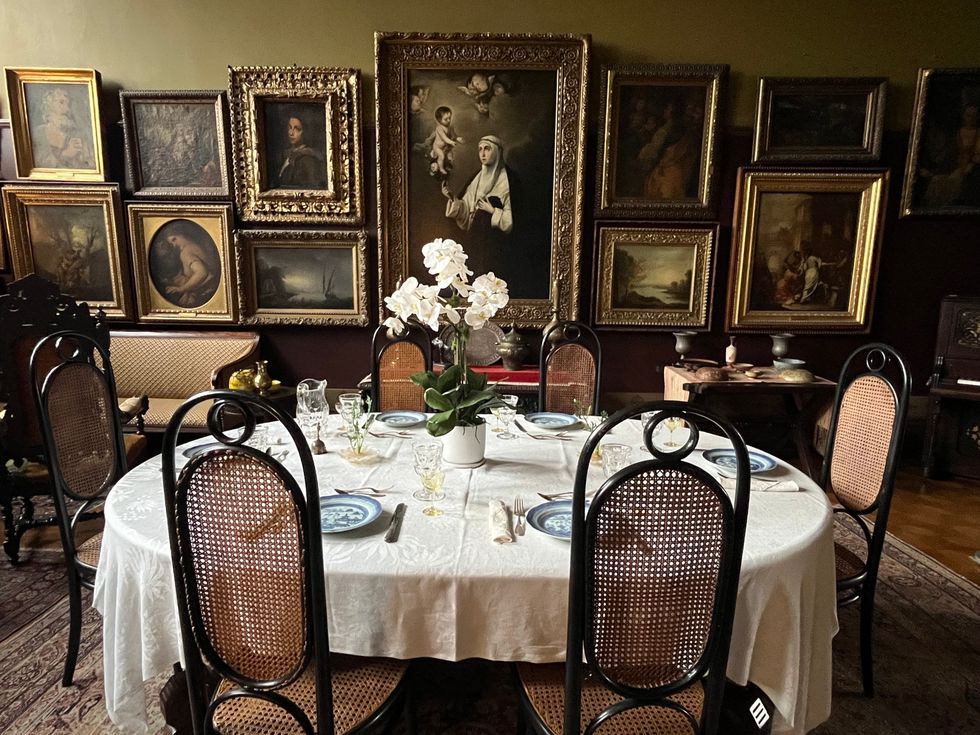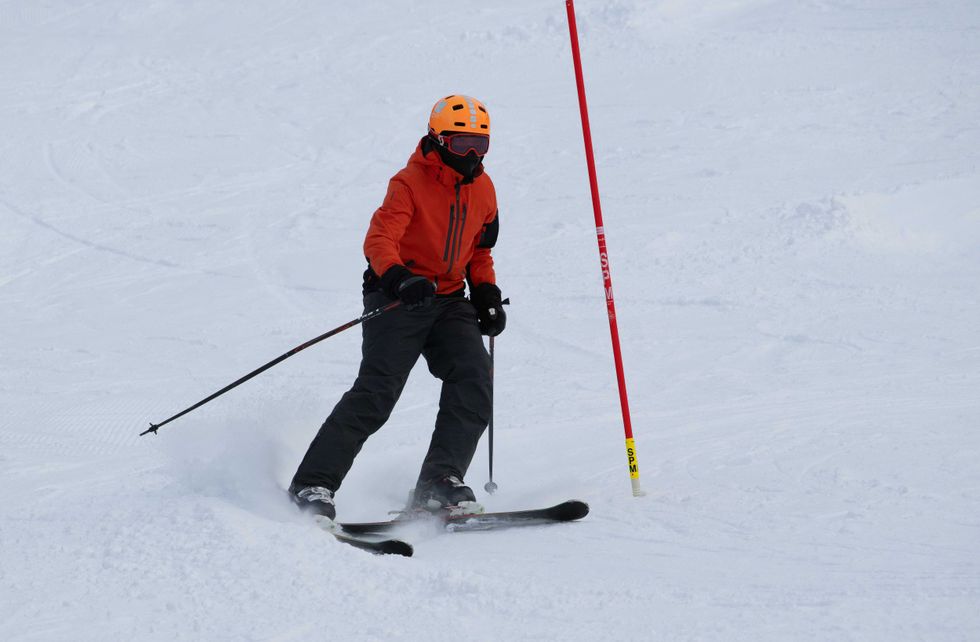Cruel Calculus: Reconciliation bill proves an intentional tool to deny healthcare access
Guest commentary by Nancy Heaton
Guest commentary by Nancy Heaton
The reconciliation bill signed into law on July 4th — paying for tax cuts by slashing healthcare access — represents a cruel and devastating blow to rural America. For the 17 towns where northwest Connecticut meets New York’s Greater Harlem Valley, these cuts aren’t abstract policy debates. They’re a direct threat to our neighbors’ survival.
In our 17-town region, the stakes are deeply personal. Based on statewide enrollment patterns, we estimate that roughly 32% of residents across our 52,000-person community — approximately 17,000 neighbors — depend on Medicaid coverage to stay healthy. This includes an estimated 8,000 children, representing about two-thirds of kids in our region. I’m talking about the cashiers at our local market, the home health aides caring for our elderly parents, the restaurant workers serving our families. What’s particularly striking is that 73% of the adults on Medicaid are working — they’re just caught in jobs that don’t offer decent health benefits.
When federal Medicaid funding — $6.6 billion annually in Connecticut and $62.4 billion in New York —gets cut, rural communities like ours face a perfect storm of healthcare collapse.
Rural healthcare operates on razor-thin margins. When Medicaid reimbursements drop, the domino effect is swift and merciless. Community health centers that serve regardless of ability to pay suddenly can’t meet payroll. Emergency departments become overwhelmed as uninsured residents seek primary care there, the most expensive setting possible.
For families scattered across our 17 towns, the nearest hospital might be 30 minutes away on a good day. When facilities close due to funding shortfalls, that distance becomes life-threatening. Transportation services currently provided by healthcare and social service organizations — often the only way elderly and disabled residents reach medical appointments — disappear overnight.
School-based health centers will likely be among the first casualties of healthcare cuts, and our communities will feel this loss acutely. Connecticut’s Region One School District and New York’s Webutuck Central School District have seen tremendous community support for bringing healthcare directly to students during school hours.
These programs aren’t luxuries, they’re necessities born from reality. When Foundation for Community Health began serving this region in 2003, we discovered that 60% of third graders had never received preventive dental care. Not because families didn’t care, but because the nearest dentists were hours away, requiring unpaid time off work that many couldn’t afford.
Over two decades, we’ve learned that preventive dental care correlates directly with overall health outcomes. Yet in February 2025, Community Health & Wellness indefinitely suspended dental services due to Connecticut’s inadequate Medicaid reimbursement rates. While other providers across the state may have quietly cut services too, ours was the only publicly announced suspension, a troubling sign that rural communities bear the brunt of funding shortfalls first and most visibly.
Healthcare cuts don’t just affect those who lose coverage, they devastate entire communities. When working families can’t access preventive care, we see sick children in classrooms, spreading illness and hampering learning. Healthcare costs will increase for everyone as emergency departments become primary care providers.
While Connecticut recently raised Medicaid reimbursement rates, the increase falls short of covering actual cost of care. Healthcare providers face rising wages, workforce shortages, and increasing procedure costs, while reimbursements remain inadequate. The math simply doesn’t work.
For rural providers serving large geographic areas with limited patient volumes, these financial pressures become existential threats. When the nearest alternative provider is hours away, losing even one clinic can leave thousands without access to care.
While the Medicaid cuts won’t take effect immediately, the reconciliation bill demands our urgent response now. The next two years present a window of opportunity to make our voices heard —and protect access to care — before these devastating reductions become reality. We still have the infrastructure and services that these cuts will eliminate, but only if we act.
This means reaching out to our representatives with the specific stories of healthcare access challenges in our region — the real experiences of families who drive long distances for routine care, or who delay treatment until conditions become emergencies. We need to share how working families in our 17 towns depend on Medicaid coverage, and amplify the voices of those already harmed by inadequate healthcare funding, like the families who lost access to dental care when Community Health & Wellness suspended services.
This is not the time to be quiet. Rural communities have always been resilient, but we cannot survive the deliberate dismantling of our healthcare infrastructure. Every resident of our 17-town region has a stake in this fight.
The overall health of our community depends on each of us demanding accessible healthcare for all.
Nancy Heaton is the President and CEO of Foundation for Community Health, serving northwest Connecticut and New York’s Greater Harlem Valley. She has over 30 years of experience in public health and has led FCH for 21 years.
John Harney, president of the Salisbury Housing Trust, presents Jocelyn Ayer, executive director of the Litchfield County Centers for Housing Opportunity, center, and U.S. Rep. Jahana Hayes, 5th District, with local maple syrup. Hayes was in Salisbury Thursday to tour one of the trust’s latest houses on Perry Street.
SALISBURY — Congresswoman Jahana Hayes (D-5) admired the kitchen cabinets, the sunlight streaming through the large windows and an airy room well suited for flexible living space.
She toured the new affordable home at 17 Perry St. on Thursday, Jan. 29. The house, recently completed by the Salisbury Housing Trust, is awaiting a family to call it home. The modular home is one of four erected in Salisbury through the Litchfield County Center for Housing Opportunity’s Affordable Homeownership Program for scattered sites. Houses were also built in Norfolk, Cornwall and Washington.
Jocelyn Ayer, director of the center, joined members of the housing trust and First Selectman Curtis Rand in welcoming Hayes and explaining how the project came together. Rand said the property was the site of a dry-cleaning establishment located in the center of a residential area. “It was owned by two people who walked away from it. It took 15 years before we took the initiative to do something. We didn’t want to foreclose until we were sure we had someone to share in the cleanup.”
That partner was the state Department of Economic and Community Development, which provided a grant. Once the contamination was abated, a process that took five years, the town gave the property to the trust.
Hayes commended the town, saying, “I’m surprised you took the risk.”
Ayer said the critical pieces in making the project happen were the town donating the land and the Planning and Zoning Commission approving two homes on the Perry Street lot. She also thanked Hayes for her support in securing some federal funding toward the project.
“Other towns are jealous of the support we have here,” Ayer told Hayes, which includes help from the town, state and federal government.

Each of the houses costs $250,000. The trust retains the land on which they sit. The cost to build each house was $500,000, said Ayer. So far, two of the four Salisbury homes are occupied. Those eligible must be first-time homeowners.
Heat is provided by mini-split units in each room. The houses run on electricity and Ayer said the trust is exploring solar options. “We have $40,000 for each house, but we’re having a hard time getting bids near that.”
Jennifer Kronholm Clark, vice president of the trust, described the families who are already occupying the two houses. Just next door at 19 Perry St. is a young family with two children, one born recently. The mother grew up in Salisbury and “this is a wonderful opportunity for her to raise her children where she was raised. It’s a beautiful story.”
The family in one of the Undermountain Road houses has three boys who are thrilled to have a playground practically in their front yard, said John Harney, president of the trust. When the town conveyed that parcel, it stipulated that the existing playground remain.
Even with the $250,000 price tag, which is considered affordable in today’s housing market, Ayer said there has been a lot of interest expressed, but many just cannot afford to buy because they are unable to secure a mortgage. Hayes noted the guidelines have to be adjusted, adding that while affordable housing has always been an issue, “it’s getting to the top of the priority list.”
She lauded Ayer for all the work she does to promote affordable housing, telling her “You have a great vision. I’ll keep going to bat for you. I’ll keep trying to get federal money.”
As she was about to leave, Hayes was presented by Harney with what he called “liquid gold” — maple syrup made by Dolores and Champ Perotti of East Canaan. He also had a bottle for Ayer.
Those who may be interested in applying for the homeownership program should contact Ayer at 203-579-3180.
A judge recently dismissed one lawsuit tied to the proposed redevelopment, but a separate court appeal of the project’s approval is still pending.
LAKEVILLE — A Connecticut Superior Court judge has dismissed a lawsuit filed against Salisbury’s Planning and Zoning Commission challenging a zoning amendment tied to the controversial expansion of the Wake Robin Inn.
The case focused on a 2024 zoning regulation adopted by the P&Z that allows hotel development in the Rural Residential 1 zone, where the historic Wake Robin Inn is located. That amendment provided the legal basis for the commission’s approval of the project in October 2025; had the lawsuit succeeded, the redevelopment would have been halted.
The decision, issued Jan. 29 by the Superior Court in Torrington, rejected a claim brought by Wells Hill Road residents Angela and William Cruger seeking to nullify the amendment. The Crugers filed the lawsuit in March 2025, arguing the regulation was improperly adopted and amounted to illegal spot zoning intended to benefit the project’s developer, Aradev LLC.
The zoning amendment drew scrutiny when it was adopted, with opponents asserting it was crafted specifically to enable the Wake Robin Inn project. Town officials and land use staff, however, repeatedly said the change was years in the making and intended to address zoning nonconformities affecting historic inns throughout Salisbury.
In a memorandum of decision, the court found the plaintiffs failed to meet their burden of proof that proper notification was lacking. The judge wrote that “a close examination of the record” showed the Crugers did not demonstrate that public notice of the zoning change was procedurally deficient, unduly vague or untimely filed.
The dismissed case is the first of two legal challenges filed by the Crugers related to the Wake Robin Inn redevelopment. A second lawsuit — an appeal of the P&Z’s approval of Aradev’s application to redevelop and expand the inn — remains pending before the court.
Former Planning and Zoning Commission Chair Michael Klemens said that Thursday's ruling brought vindication. In a Jan. 30 email to the P&Z and commission attorney Charles Andres, Klemens said the lawsuit was largely based on claims that he and Land Use Director Conroy had misled the public and the commission during the regulatory process.
“So not only are the regulations recognized by the Superior Court as legally adopted,” Klemens wrote, “but the aspersions cast upon the integrity of staff and your immediate past chair are hopefully finally put to rest.”
Andres informed the Land Use Office and current P&Z Chair Cathy Shyer that the Crugers have 20 days to challenge the court’s ruling.
Under the approved plan, Aradev would redevelop the Wake Robin Inn to include a new detached 2,000-square-foot cabin, event space, a sit-down restaurant and fast-casual counter, as well as a spa, library, lounge, gym and seasonal pool. If built, the project would increase the number of guest rooms from 38 to 54.
Olana State Historic Site, the hilltop home created by 19th-century Hudson River School painter Frederic Edwin Church, rises above the Hudson River on a clear winter afternoon.
On a recent mid-January afternoon, with the clouds parted and the snow momentarily cleared, I pointed my car northwest toward Hudson with a simple goal: to get out of the house and see something beautiful.
My destination was the Olana State Historic Site, the hilltop home of 19th-century landscape painter Frederic Edwin Church. What I found there was not just a welcome winter outing, but a reminder that beauty — expansive, restorative beauty — does not hibernate.
2026 marks the 200th anniversary of Church’s birth, making this a particularly timely moment to take in what he created during his lifetime. Church — one of the most notable artists of the Hudson River School movement — was an accomplished landscape painter who gained a reputation as an artist-traveler.
From South America and Western Europe to the Middle East and the Caribbean, Church sought out dramatic, epic scenes that he could capture on canvas and bring back to the U.S. to sell. The profits from those works, in turn, allowed him to create a breathtaking masterwork of his own: Olana.
Olana rises above the Hudson River like a mirage, its Persian-inspired facade an unexpected sight amid the barren winter landscape. With miles of trails, visitors can take in the natural splendor of rolling hills and the river from every angle. From the house itself, the view stretches across the Catskills, a layered panorama of soft blues and silvers that appears all the more dazzling in winter.

Inside the home, the sense of awe deepens. Olana’s interior is rich with color, pattern and texture — warm reds, stenciled walls, intricate woodwork — a striking counterpoint to the monochrome world outside. Light pours through tall windows, framing the Hudson Valley like living paintings.
Every corner of the house pays tribute to the far-flung places Church visited throughout his career. From architectural details to the objects he collected and displayed, visitors are transported to another world. Walking from room to room feels less like touring a house museum and more like stepping into the mind of an artist transfixed by the staggering beauty of the world around him.
As I made my way back down the hill, the winter light fading fast, I felt refreshed in a way that only comes from seeing something anew. Olana is not just a monument to one artist, but a testament to a way of viewing the world — one that values observation, patience and reverence for the natural environment. For those looking to venture out during the colder months and to be reminded why this region has inspired generations of artists and dreamers, there may be no better place to start than Olana.
Olana State Historic Site is located at 5720 State Route 9G, Hudson, New York. For more information and to purchase tours, visit: olana.org

Berkshire Hills Ski League includes Washington Montessori School, Indian Mountain School, Rumsey Hall and Marvelwood School.
CORNWALL — Mohawk Mountain hosted a meet of the Berkshire Hills Ski League Wednesday, Jan. 28.
Housatonic Valley Regional High School earned its first team victory of the season. Individually for the Mountaineers, Meadow Moerschell placed 2nd, Winter Cheney placed 3rd, Elden Grace placed 6th and Ian Thomen placed 12th.
The league includes a mix of private and public schools. HVRHS competed against Washington Montessori School, Indian Mountain School, Rumsey Hall and Marvelwood School.

Conditions were ideal for slalom skiing at Mohawk, albeit cold for spectators with the temperature in the teens. Approximately 20-inches of snow fell earlier in the week.
Mohawk will continue to host weekly meets of the BHSL each Wednesday through the end of the season. The league championship will take place Feb. 25.
